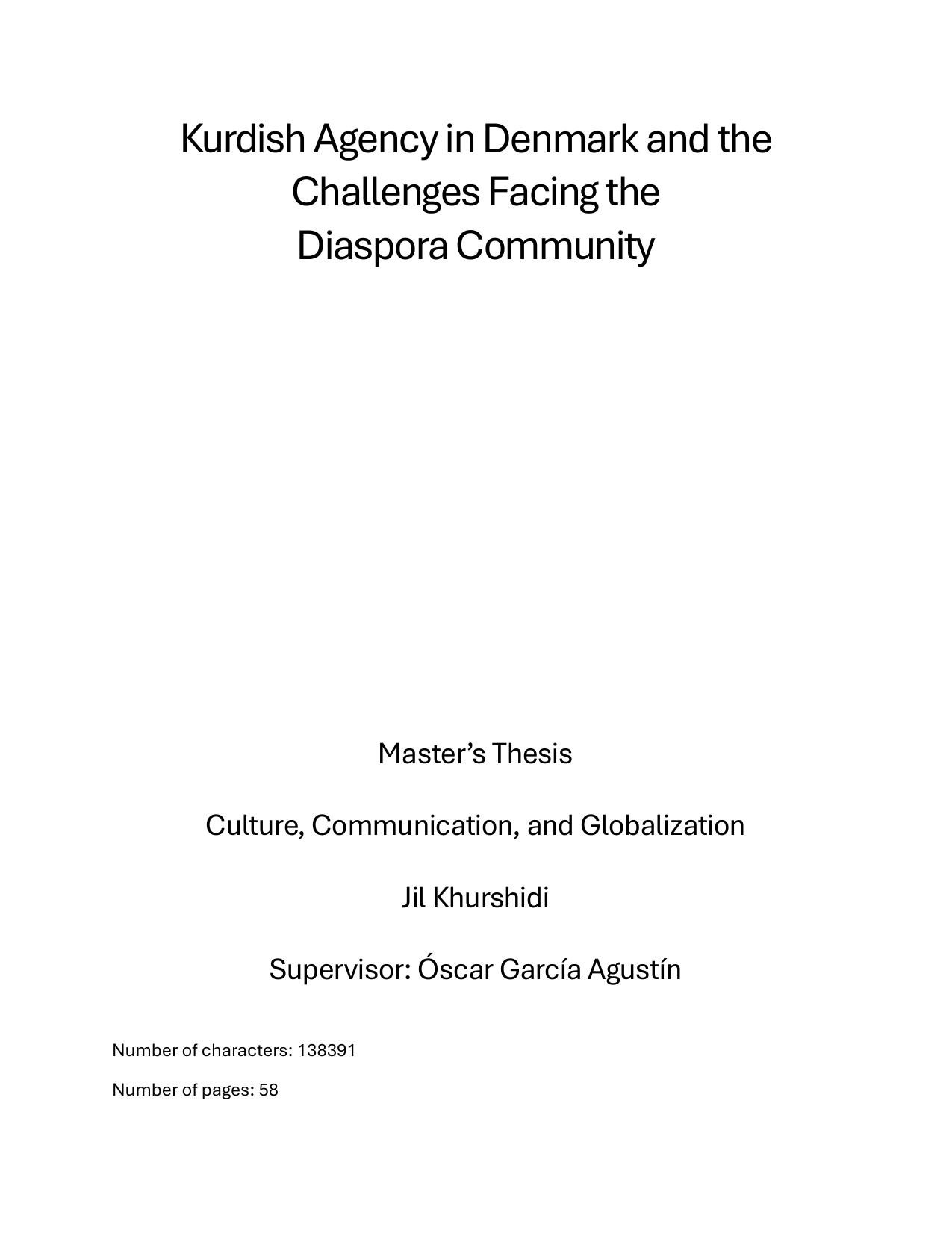
Kurdish Agency in Denmark and the Challenges Facing the Diaspora Community
Author
Term
4. term
Publication year
2025
Submitted on
2025-06-02
Pages
58
Abstract
This project explores how the diaspora Kurdish community in Denmark practices agency. It draws inspiration from Boaventura de Sousa Santos’ work on epistemologies of the South, and takes Alinia, Wahlbeck, Eliassi, and Khayati’s work on the Kurdish diaspora and the triadic relationship to the homeland, the diaspora, and the host country as the foundational framework. The research is based on a series of interviews with members of The Dialogue Club, a Kurdish grassroots organization that organizes cultural, intellectual, and social events that focus on Kurdish identity and history. Through the application of thematic analysis and postcolonial theories, we can see that The Dialogue Club views reclaiming agency from the perspective of disrupting the community’s ties to past dynamics that have recreated forms of domination that’s buttressed on capitalist, colonial, and patriarchal hegemony. They highlight three main challenges to the Kurdish community’s agency: 1) extremist Islamist movements, who attempt to recruit Kurdish youth from the community; 2) Kurdish political parties who use their financial resources to fracture the Kurdish diaspora; 3) the Danish government’s attitude toward immigrants and the lackluster integration proposals which doesn’t lead to meaningful results. They’ve worked to provide solutions to these challenges through community building via grassroots initiatives that work to rebuild the Kurdish identity in the diaspora along feminist, secular, and democratic principles, and a rejection of political ideologies that exclude or deny diversity of opinion. To achieve these things, they’ve emphasized the role of women in the organization and have dedicated a substantial effort to focus many of their events on issues regarding women’s autonomy in Kurdish society. Additionally, they attempt to foster the creation of hybrid cultures, that can reconcile the differences between the Kurdish identity and Danish culture. At the same time, they see this type of hybrid culture as a defense against the influence of Islamist movements, who often take advantage of social isolation to recruit young people. The analysis highlights the role of the triadic relationship in diaspora identity formation, as the dynamics seen in diaspora Kurdish community building and identity formation runs parallel with developments in Kurdistan. In this way, The Dialogue Club’s initiatives can be seen as a miniature community that implements the democratic confederalist philosophy prevalent in North Kurdistan (Turkey) and West Kurdistan (Syria).
Keywords
Kurds ; Diaspora ; Rojava ; Identity ; Agency ; Epistemologies of the South ; Hybrid cultures ; transborder citizenship ; Kurdish ; Kurdistan ; Denmark ; Migration
Documents
